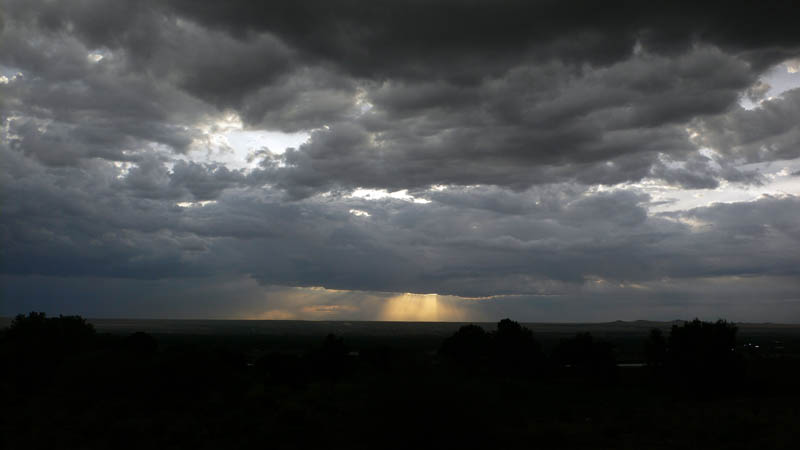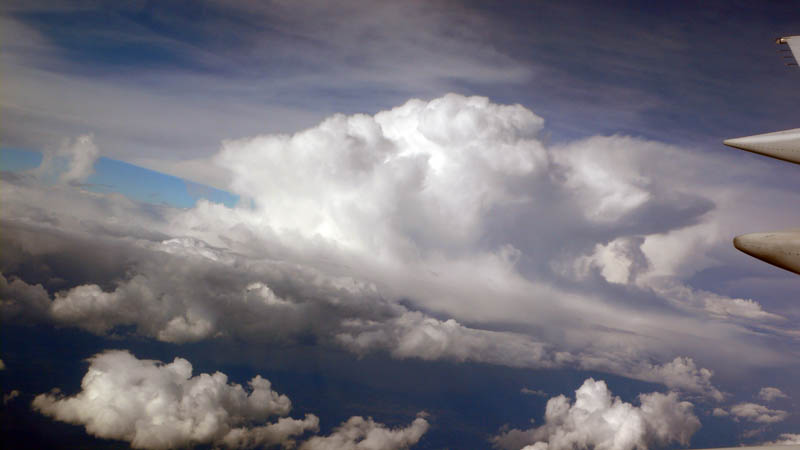A few recent storm photos: New Mexico
New Mexico
 Colorado
Colorado

Classic photo that reminded me of my San Francisco days. We shovel snow and they shovel mud… via the NYT
Killer hurricanes, swarming sharks, and wildlife fighting for survival headlined this year’s most popular videos from National Geographic News. Replay the year in science, nature, and exploration with 2005’s top ten videos.
Michael Lewis (with his better half, Tabitha Soren riding shotgun taking pictures) visits post flood New Orleans:
Immediately he had a problem: a small generator that powered one tiny window air-conditioning unit. It cooled just one small room, his office. But the thing made such a racket that, as he put it, “they could have busted down the front door and be storming inside and I wouldn’t have heard them. There could have been 20 natives outside screaming, ‘I’m gonna burn your house down,’ and I’d a never heard it.” Fearing he might nod off and be taken in his sleep, he jammed a rack filled with insurance-industry magazines against the door. (Haywood sells life insurance.) In his little office, he sat all night – as far as he knew, the last white person left in New Orleans. He tried to sleep, he said, but “I kept dreaming all night long someone was coming through the door.” He didn’t leave his air-conditioned office until first light, when he crept out and squinted through his mail slot. In that moment, he was what Uptown New Orleans had become, even before the storm: a white man, alone, peering out through a slot in search of what might kill him. All he needed was the answer.
 |
 |
 |
I last spent time in New Orleans in 2002 with several previous visits in the ’90’s. The place was in many ways beautiful, but I could always sense tension in the city. I’ve posted some photos from this visit here. A more recent set of photos, Five days with Katrina provides quite a contrast with my 2002 digital images.
Katrina IS a big deal today and will be for weeks to come, not just because New Orleans is below sea level and not just because she could cause massive loss of life and property, but because Katrina could also disrupt Gulf supplies of petroleum (the GOM supplies around 1.3mbpd, we use around 20mbpd in the US) from rigs, refineries, and pipelines, etc., for a while.
Great Site, via John Robb.

Madison woke up to an inch or two of snow this morning, with flurries continuing throughout the day.
James Fallows takes a look at the intersection of public (taxpayer funded) and private (business) interests, specifically, weather data that we’ve already paid for. Some businesses, who have made a living recycling that data, would like to continue their gatekeeper role. [We have examples of this in Madison. Access Dane offers “subscription” access to data that we’ve already paid for]. Here’s a clip from Fallows article. Read it all.
some of the most significant innovations have been made where public and private efforts touch. In its first term, the Bush team made a few important pro-technology choices. Over the next year it will signal whether it intends to stand by them.
There is a long historical background to the administration’s choices, plus a variety of recent shifts and circumstances. The history stretches to the early days of the republic, and the idea that government-sponsored research in science and technology could bolster private business growth. Progress in farming, led by the land-grant universities, demonstrated this concept in the 19th century. Sputnik-era science, culminating in the work that led to the Internet, did the same in the 20th century.
Open source weather is available here.
Create your own weather site using the NOAA’s xml web service.